As we have previously discussed, the decision to prioritize a single primary cluster in a regional economic development plan is challenging. For Milwaukee, this was especially difficult in development of its global trade and investment plan because it has three legitimate clusters: energy, power and controls; food and beverage; and water technologies. The team developing the plan was reluctant to pick a favorite.
After months of anguished debate (which one participant equated to choosing a favorite child), a key meeting with cluster leaders made the decision clear. Among these three clusters, they realized water technologies represented a truly differentiating specialization on a global scale, an increasingly relevant attribute worldwide, and the best opportunity to establish a global identity and open new doors for the entire region. It was also the cluster that was best organized to pursue international business development.
Water technologies in Milwaukee clearly encompasses the critical factors necessary for a robust cluster. Crucially, it has leadership from the region’s large base of 200 existing firms in the industry, which range from start-ups to multinationals, and all strongly identify with the cluster. The president of Badger Meter, Richard Meeusen, is a particularly visible and vocal champion. In fact, the cluster’s formation was driven by leaders from a few large, global companies in the region that realized they were not just part of a scattered set of manufacturing industries as defined by their official industry codes, but were connected by the “theme” of water technologies (which is not defined by an industry code).
Further, these leaders formed a staffed organization, the Water Council, in 2009 that knit the cluster together. To confirm that the Milwaukee region was truly globally relevant, the Water Council conducted a study of global water hubs and found that only the nations of Israel, Singapore, and the Netherlands had anywhere near the concentration of water technologies companies and assets as the Milwaukee region, further cementing the region’s global vision as a viable, near-term reality.
The cluster has been further boosted by significant investment from state government and universities, as well as a physical presence (the Global Water Center building) in a water technologies innovation district where all players can connect.
Lastly, all of this recent activity is rooted in Milwaukee’s strong economic history related to water (including a location on the world’s largest freshwater system). The region was originally built around breweries, tanneries, and food processing operations. These “wet industries” were served by a growing set of water technology companies that remained in the region even after the larger industries declined.
However, while the team had committed to water technologies through the published plan, they remained hesitant in implementation. That is, until two market trips to Germany this year offered the perfect opportunity to test the value of putting a stake in the ground.
In April, the Milwaukee 7 Regional Economic Development Partnership sent a delegation to Hannover-Messe, the world’s leading industrial technology trade fair. As put by Beverley Ferrara of the Milwaukee 7: “Our region came with a broad marketing message, bumping up against almost 100 U.S. metro areas that were part of the SelectUSA pavilion. And guess what? We’re all saying the same things: we have clusters around manufacturing, the right location, affordable real estate, talented workforce, friendly business climate, incentives, strong infrastructure, great lifestyle… Trying to be everything to everyone ends up being nothing to no one.”
A few weeks later, the Milwaukee 7 teamed up with the Water Council to attend IFAT, the world’s leading trade fair for water in Munich. Armed with a highly targeted message, the team came away with a very different result. According to Beverley, “the show was a great success – already a company is planning a site visit to Milwaukee – and cemented the concept that a globally relevant cluster, plus true specialization, equals a compelling value proposition.” The contrast between the two trade fairs strongly confirmed that the signature strategy of Greater Milwaukee’s recently released global trade and investment plan – a focus on water technologies – was the right choice.
While identifying and fully embracing a cluster as an anchor for global engagement can generate real opportunities, it is also critical that the chosen cluster is legitimate and clearly defined, not a broad aspiration that many other metros claim (biotech is a common example). The increasing number of local startups, attraction of new investment and firms, and the growing stream of international delegations to the region signify that by owning its strength, Greater Milwaukee can rightfully stake its claim as the global fresh water hub.
Picture courtesy of brennanMKE
The Brookings Institution is committed to quality, independence, and impact.
We are supported by a diverse array of funders. In line with our values and policies, each Brookings publication represents the sole views of its author(s).
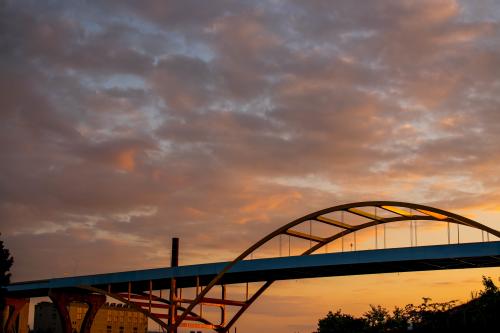
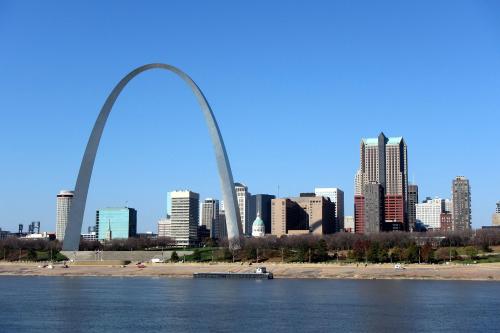
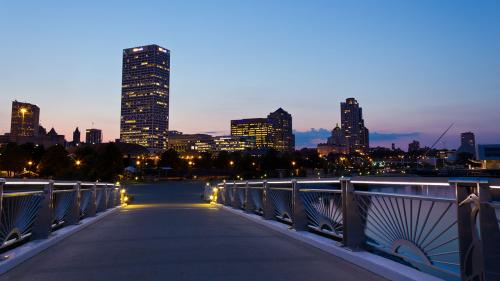
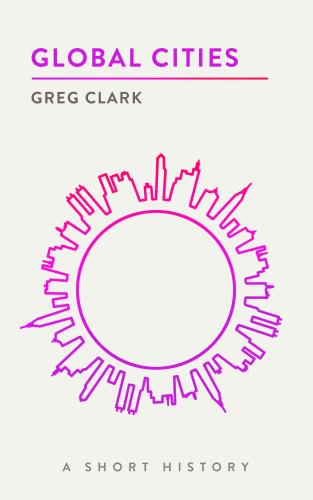
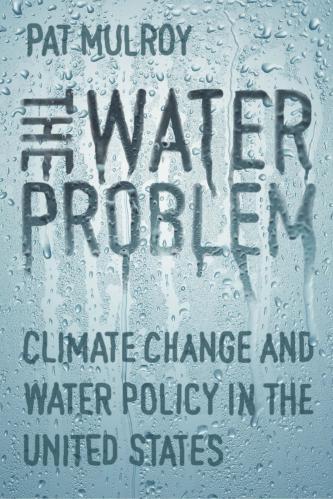



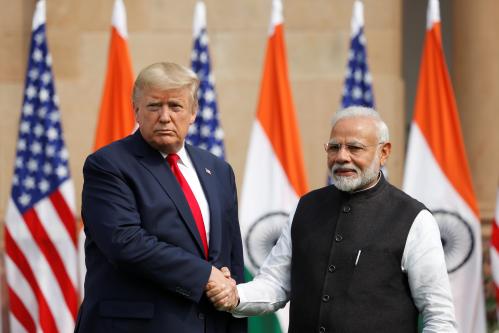
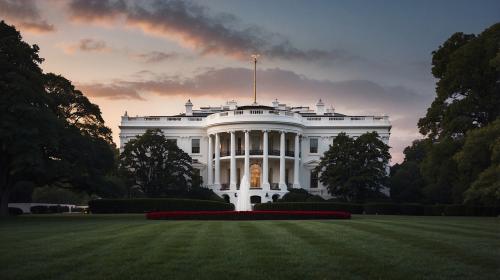

Commentary
A tale of two trade fairs: Milwaukee’s globally relevant water proposition
July 27, 2016